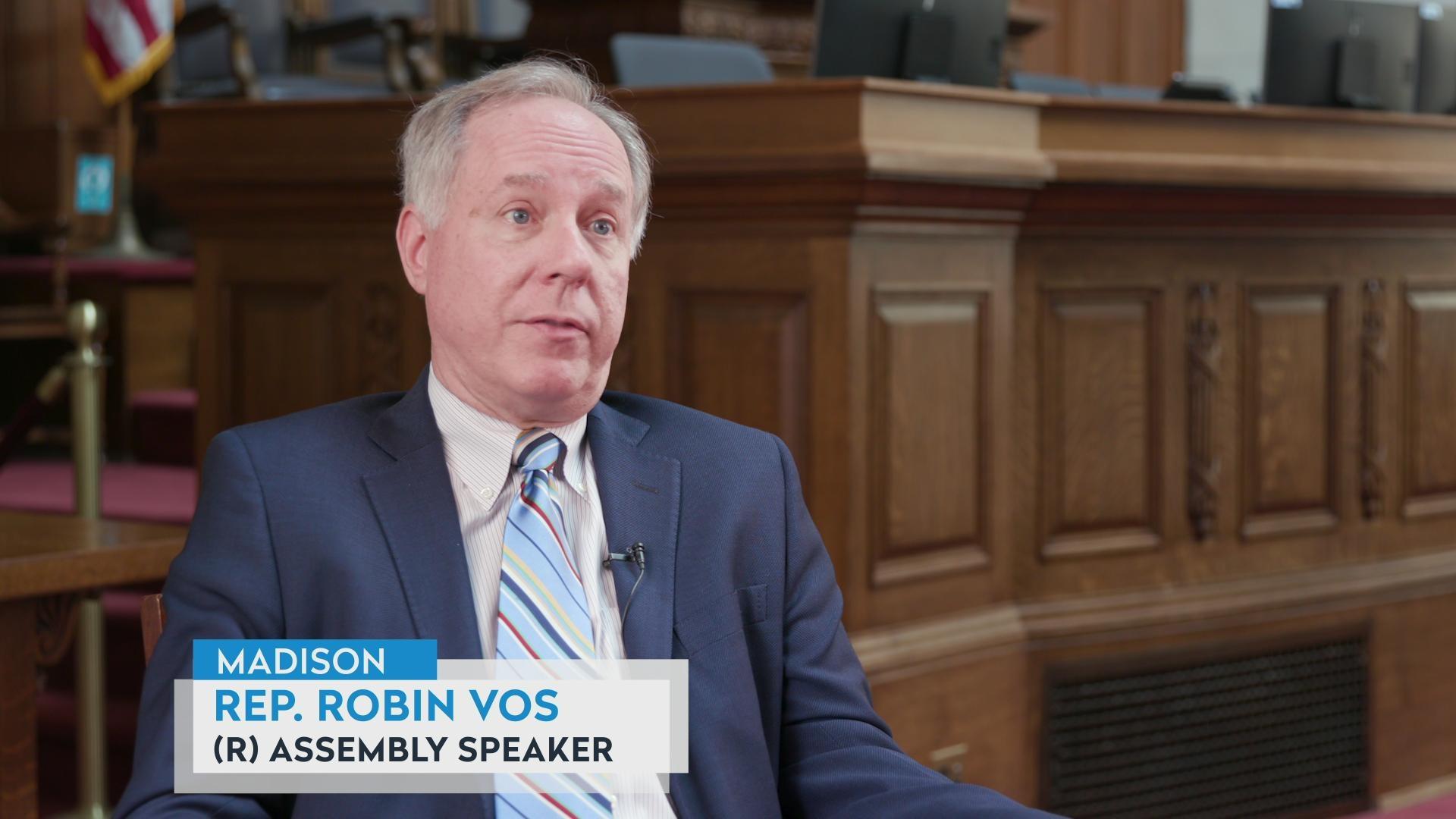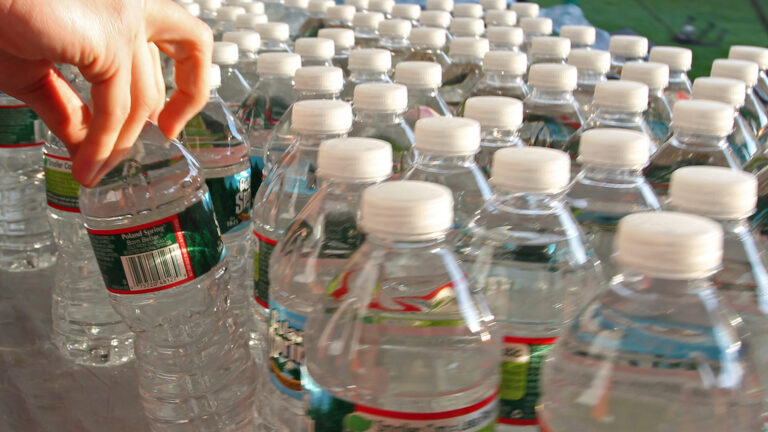Frederica Freyberg:
That pilot program allowing Wisconsin hunters to register their deer online will be part of the DNR’s ongoing review. They’re also asking hunters to participate in the deer hunter wildlife survey along with county deer advisory council meetings being held this month. The information provides data biologists use to improve population estimates for Wisconsin’s deer herd. Kevin Wallenfang is a big game ecologist with the Department of Natural Resources. He joins us this week with his perspective on the 2014 hunt and proposed changes. Thanks for being here.
Kevin Wallenfang:
You’re welcome.
Frederica Freyberg:
On the change in how deer will be registered in the future, why are you moving everything online and away from the brick and mortar?
Kevin Wallenfang:
A variety of reasons. A is hunter convenience. We’re one of the few states in the Midwest that doesn’t allow our hunters to register by some sort of an electronic method. And other states are finding it works very well. Their hunters like it. It’s very convenient for them. You know, in Wisconsin we have 600 and some registration stations that we’ve used for years that hunters have to travel to. Some of that they like, but other aspects of it, just that travel, the convenience of it and everything else. We’re also hoping there’s going to be a cost savings involved in it. It’s instantaneous data for us. So right now you're wondering just how many deer did we really harvest during the season? We don’t know exactly. Next year this time I’ll be able to tell you exactly. So, a variety of reasons.
Frederica Freyberg:
So how did the pilot go this year?
Kevin Wallenfang:
It went pretty well. During the early archery season we had 4,500 people register to deer. During the gun deer season we had another about 4,500 people register. We’ve already taken a lot of comments. We’ve got a survey out right now to the people that used the system. So we’re getting that feedback. In fact, I just came from a meeting when we’re talking about what we’re going to change to make it a better system.
Frederica Freyberg:
So what did you learn?
Kevin Wallenfang:
Well, a lot of it has to do with being able to hear. You know how some of these things are used, there’s kind of a robot voice on the other end based on what the person tells you, and some of that was difficult to understand. There’s a confirmation number that the hunter will have to record and keep handy. And that was a very long number, it had letters and digits in it. So we’re changing that kind of stuff just to make it easier for them to capture the information that they’re required to have.
Frederica Freyberg:
Now, a lot of small businesses depend on the revenue generated when hunters come in to register their deer. Are you worried about the economic impact of that loss of business potentially?
Kevin Wallenfang:
No. I know that they are, but when we look at other states that do this, they haven’t found that to be the case. As a matter of fact, you could kind of look at the system that we are abandoning, if you want to call it that, the in-person, is that usually, for example, in a small town one station was the registration station. We wouldn’t have multiple. So in a way that one station kind of had a monopoly on the system. Now with an electronic system, if a business is willing to put a laptop computer up on the bar or the counter or whatever or let somebody use the telephone, they can all be a station. So, you know, the money might get spread out more to more businesses. Hunters are still going to stop and buy handwarmers and food and gas and whatever it might be. That money is still going to be out in the economy.
Frederica Freyberg:
Still, is it hard for old hunters to learn new tricks?
Kevin Wallenfang:
Well, the thing about it is that going to a registration station has been a part of the Wisconsin deer hunting culture. It's fun to go and look at other people’s deer and hear the stories and that kind of thing. But to that, we would say, that doesn’t have to end. There’s still going to be big buck contests, there's still going to be major hubs where people go to look at their animals. That does not have to end. So we’re hoping that that tradition continues.
Frederica Freyberg:
Another change that came out of the deer czar's report was that changing the zones and buck-only permits in the northern third of the state. Is that responsible for the harvest numbers being down this year?
Kevin Wallenfang:
It is partially, but I should say that we evaluate those numbers annually. So that really had nothing to do with the deer trustee report that you just referred to. We do that every single year. We look at population numbers and we try to make a determination of how many permits we need out there to manage the population. You know, there’s a variety of things going on in northern Wisconsin, especially that deer numbers are down. And one of those is that we’ve had a couple of very bad winters, and we take that into account. Deer numbers are down because of it, and it’s a very common sense approach that in order to start rebuilding the population from, in some areas extremely low levels. We just back off on the antlerless harvest and let that population grow a little bit.
Frederica Freyberg:
Remind us how low the harvest was this year comparatively?
Kevin Wallenfang:
Well, if you want to look specifically at the north, the overall buck harvest was down about 8%. The antlerless harvest was down about 60%, 58%, something like that. So that’s by design, we didn’t want those deer killed. There are still groups out there that can take an antlerless deer, military on leave, disabled people and kids under the age of 18. So there is still some antlerless harvest going on out there. That’s actually a point of contention for a lot of people right now. They feel zero should be zero. So I'm sure we're going to hear more about that in the coming months. But on a statewide basis, it was actually the lowest harvest in about 30 years, 191,000 deer. Doesn’t sound like much for the state of Wisconsin, but, you know, when you compare it to our neighbors, it’s a lot of deer. We’re still killing a lot of deer, but certainly not to the levels that folks got used to in the mid 2000s.
Frederica Freyberg:
You talk about there being contention about some of the rules, but we checked in with Whitetails Unlimited, the field director for northern Wisconsin, and they’re all behind the DNR’s plans.
Kevin Wallenfang:
Great.
Frederica Freyberg:
With the buck-only permits, and suggest that that might be needed again next year. Do you have a sense of how long it will take to rebuild the herd?
Kevin Wallenfang:
It’s very difficult to say. You know, we’ve had areas in northern Wisconsin that have been buck-only actually for the last five or six years. And because of a variety of reasons, those populations are not growing, at least not to the rate that people would like to see them. When we do get growth, bang, we get another bad winter and things drop again. The interesting thing that's going on right now is we've these brand new county deer advisory councils and they are the ones looking at the numbers. They’re going to help us determine how many permits, if any permits, that we need out there from here on out. The public can be very involved in this process and it’s happening right now.
Frederica Freyberg:
Speaking of the public, though, it’s not just necessarily conditions or herd populations, but license sales themselves are down.
Kevin Wallenfang:
They did.
Frederica Freyberg:
Do you think people are responding to all these changes?
Kevin Wallenfang:
We see this whenever there’s a fluctuation in the deer population. As populations go up, people get more excited about it. We had other issues going on this year, though, too. Some folks in the far northern part of the state, there was 50-plus inches of snow on the ground when we started the season. They couldn’t even get to their cabin. They told us they weren’t going to go. Without doe permits in the north, with deer numbers being down, some folks just say, hey, we're going to take the year off.
Frederica Freyberg:
Good luck to you. Kevin Wallenfang, thanks very much.
Search Episodes
News Stories from PBS Wisconsin

Donate to sign up. Activate and sign in to Passport. It's that easy to help PBS Wisconsin serve your community through media that educates, inspires, and entertains.
Make your membership gift today
Only for new users: Activate Passport using your code or email address
Already a member?
Look up my account
Need some help? Go to FAQ or visit PBS Passport Help
Need help accessing PBS Wisconsin anywhere?

Online Access | Platform & Device Access | Cable or Satellite Access | Over-The-Air Access
Visit Access Guide
Need help accessing PBS Wisconsin anywhere?

Visit Our
Live TV Access Guide
Online AccessPlatform & Device Access
Cable or Satellite Access
Over-The-Air Access
Visit Access Guide
 Passport
Passport


















Follow Us